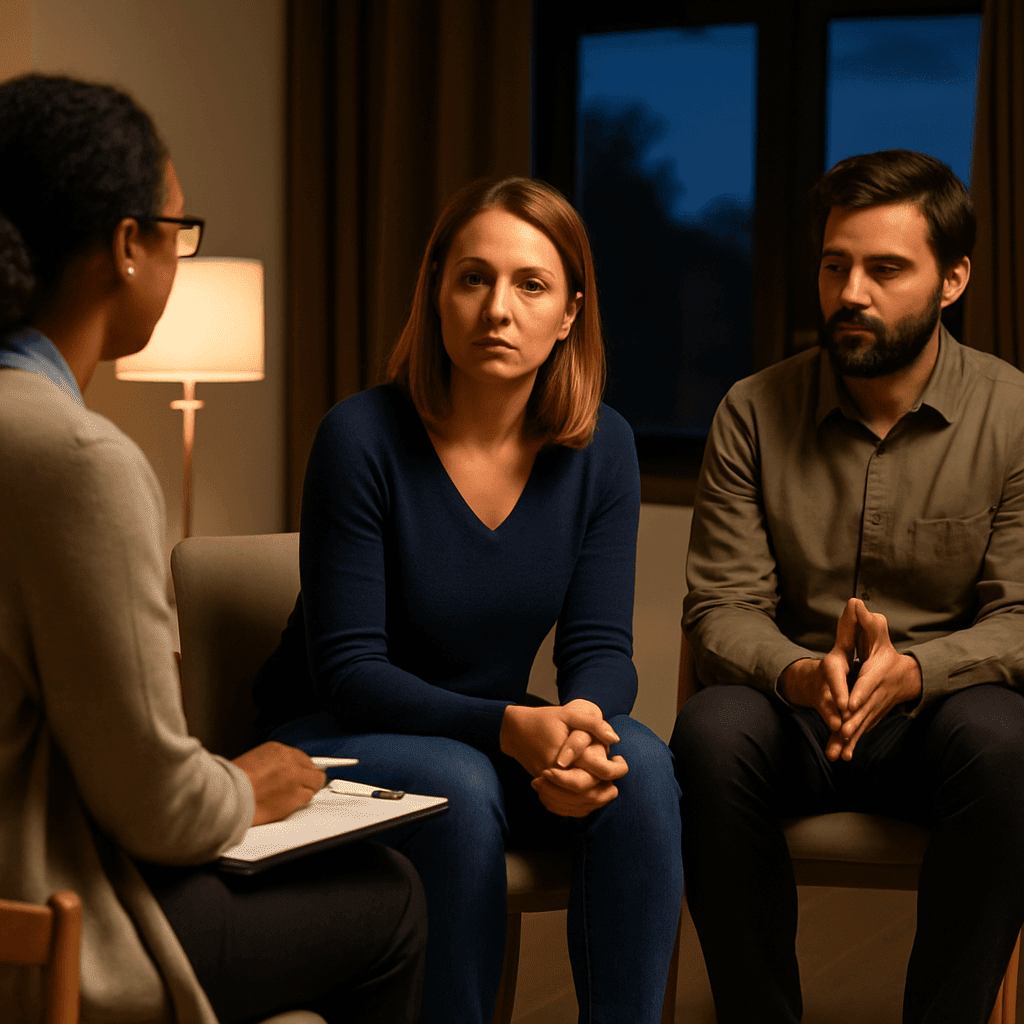Last Updated on November 13, 2025
What an IOP Is—and Why Schedule Flexibility Matters
An IOP is a step‑down level of care that blends group therapy, individual counseling, education, and relapse‑prevention skills. National guidance notes that adult IOPs typically provide at least nine hours of services per week, usually delivered across three or more days. That structure supports accountability without requiring overnight stays (SAMHSA TIP 47).
Accessibility and timing are not minor details. Treatment works best when it is available at the moment people can attend and when they can stay engaged long enough to benefit. Research‑based principles emphasize both timely access and adequate duration (NIDA Principles of Effective Treatment).
Why an Evening IOP Fits Working Adults in San Antonio
For many professionals, a daytime schedule is not feasible. An IOP for working adults in San Antonio offers care after typical office hours, so clients can keep employment, meet family duties, and reduce transportation barriers. Evening programming also supports discretion, which some people prefer during early recovery. Because sessions occur after work, focus tends to be stronger and interruptions fewer—two practical advantages when building new habits.
A Realistic IOP San Antonio Schedule
If you’re comparing options, a common IOP San Antonio schedule looks like this:
- Three evenings per week, about three hours per session (for example, 6–9 p.m.).
- Weekly or bi‑weekly individual counseling alongside group therapy.
- Eight or more weeks of progressive goals, with step‑downs as you meet milestones.
Nova Recovery Center’s intensive outpatient program in San Antonio follows this evidence‑based structure with afternoon and evening groups to fit work and school routines.
What Happens in the Evening Sessions
Evening groups are practical and skills‑focused. Here is what most clients experience:
- Therapy that connects to daily life. Cognitive and motivational approaches help you track triggers from the workday and practice coping that night.
- Relapse‑prevention planning. You’ll learn early‑warning signs, craving management, and weekend protection strategies.
- Individual check‑ins. Brief one‑to‑one sessions review goals, medications, and stressors that surfaced at work or home.
- Family or partner involvement. When appropriate, loved ones join to strengthen communication and boundaries.
After‑Work Rehab vs. Other Levels of Care
Choosing the right intensity saves time and reduces disruption. Here’s a quick comparison:
- Standard outpatient: Fewer than nine hours weekly; best for mild symptoms and strong natural supports.
- IOP (after‑work rehab, San Antonio): Nine to twenty hours weekly with structured, skills‑based groups—strong fit for stability plus accountability (SAMHSA TIP 47).
- PHP/day program: Five to six hours daily; helpful when symptoms escalate or structure is needed during the day.
- Residential: 24/7 care; appropriate for medical risk, unsafe home environment, or repeated relapse.
Who Thrives in an Evening IOP
Evening tracks work well for employed adults who:
- Have safe housing and transportation to attend groups consistently.
- Can apply skills between sessions and return with real‑world feedback.
- Benefit from peer accountability yet do not require 24‑hour monitoring.
- Are motivated to protect work, school, or caregiving roles while in treatment.
Hybrid and Online Options Add Flexibility
Many people balance travel, shift work, or childcare. To reduce friction, Nova also offers an online intensive outpatient program with live, therapist‑led video groups. Hybrid tracks allow you to attend in person when convenient and online when you need to. The clinical goals stay the same; the schedule becomes easier to keep.
Talking With Your Employer About Schedule Support
Some employees request temporary adjustments to attend treatment or therapy. Under the Americans with Disabilities Act, reasonable accommodations can include modified work schedules when medically necessary. Employers review requests case‑by‑case, but schedule changes are specifically listed as an example of accommodation (EEOC employer guidance). If you plan to talk with HR, prepare simple documentation and propose clear times that match evening groups. This content is general information, not legal advice.
What About Outcomes and Time in Care?
Consistency is the engine of change. National research highlights two themes: treatment must be reachable when people are ready, and staying engaged for a sufficient period improves outcomes. Evening access helps on both counts, because it removes common barriers like work conflicts or childcare (NIDA).
Most IOPs plan for nine or more clinical hours weekly across several days, often for six to eight weeks before stepping down (SAMHSA TIP 47). That cadence gives enough contact to build skills while keeping evenings manageable.
Cost, Insurance, and Practical Planning
Evening IOP is typically more affordable than residential care. Many employer plans cover part of the cost, especially when the provider is in‑network. If you are comparing options, ask about session times, hybrid access, medication management, family involvement, and aftercare. Nova makes it simple to verify your insurance benefits and estimate any out‑of‑pocket costs before you start.
How Nova’s After‑Work IOP Works in San Antonio
Nova Recovery Center designs care around the working day. The San Antonio track typically meets three evenings per week with coordinated individual sessions. Programming includes relapse‑prevention education, peer support, goal setting, and accountability check‑ins—organized so you can apply what you learn the very next morning. Learn more about our San Antonio IOP, or choose the online IOP when commuting is a barrier.
Next Steps: Start After Work—Keep Your Life Moving
If you want after‑work rehab in San Antonio that protects your job and supports long‑term change, an evening IOP is an excellent fit. It meets clinical standards, matches a professional schedule, and helps you maintain momentum at home and at work. When you are ready, our admissions team can review fit, explain the schedule, and begin your intake on the same call.
